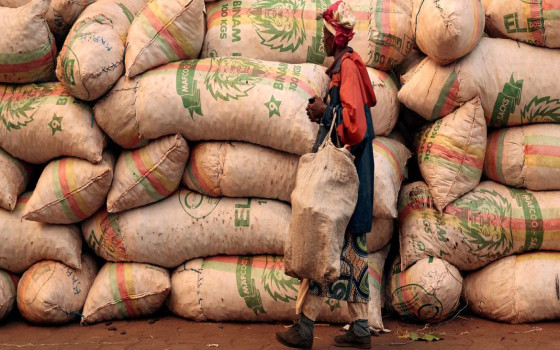
UN report: Global public debt recorded a record high last year...it reached 97 trillion...and developing countries secured $847 billion in net interest.

- Europe and Arabs
- Thursday , 6 June 2024 14:35 PM GMT
New York: Europe and the Arabs
A new report issued by the United Nations Conference on Trade and Development (UNCTAD) showed an unprecedented rise in the world’s public debt, reaching $97 trillion in 2023, an increase of $5.6 trillion over the previous year.
The new report was titled “The World of Debt 2024: A Growing Burden on Global Prosperity” and included both domestic and external general government borrowing. The report sounded the alarm about the rising debt burden on global prosperity. According to what was stated in the United Nations daily news bulletin, a copy of which we received on Thursday morning
UNCTAD said that in 2023, developing countries paid $847 billion in net interest, an increase of 26% from 2021. It added that those countries borrowed internationally at rates between two and four times higher than the United States, and between 6 and 12 times higher than Germany. Once.
The report explained that in Africa, faltering economies following multiple global crises led to a heavier debt burden, adding that the number of African countries whose debt-to-GDP ratio exceeds 60% rose from 6 to 27 between 2013 and 2023.
Benefit payments beyond education and health
UNCTAD reported in its report that the rapid rise in interest costs is restricting budgets in developing countries, and that at present, half of these countries allocate at least 8% of government revenues to debt service, a number that has doubled in the past ten years.
He added that in 2023, 54 developing countries, almost half of them in Africa, will allocate at least 10% of government funds to pay debt interest.
The report revealed that 3.3 billion individuals reside in countries where interest payments exceed spending on education and health combined. 769 million people in Africa live in countries where interest payments exceed investments in education and health, representing nearly two-thirds of the total population.
Renewing the global financial system
The report proposed a plan to revamp the global financial system and strengthen the stimulus package for the Sustainable Development Goals to address the current debt crisis. He explained that this matter requires efforts to improve the effective participation of developing countries in the governance of global financial systems.
It also requires, according to the report, addressing high debt costs and the risk of debt distress through an effective debt resolution mechanism.
These efforts also include expanding emergency financing to provide greater liquidity in times of crises, so that countries are not forced to borrow as a last resort, as well as significantly expanding the scope of concessional and long-term financing through the mobilization of multilateral development banks and private resources.












No Comments Found